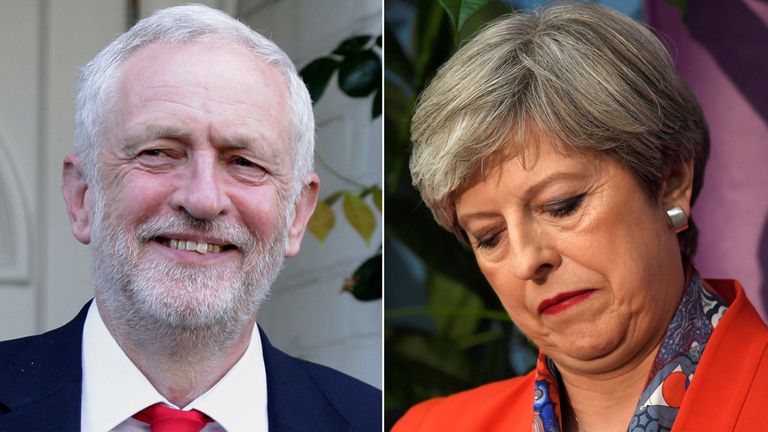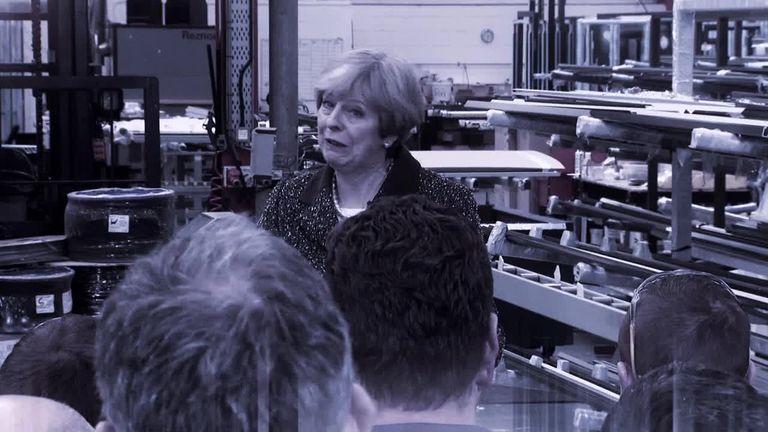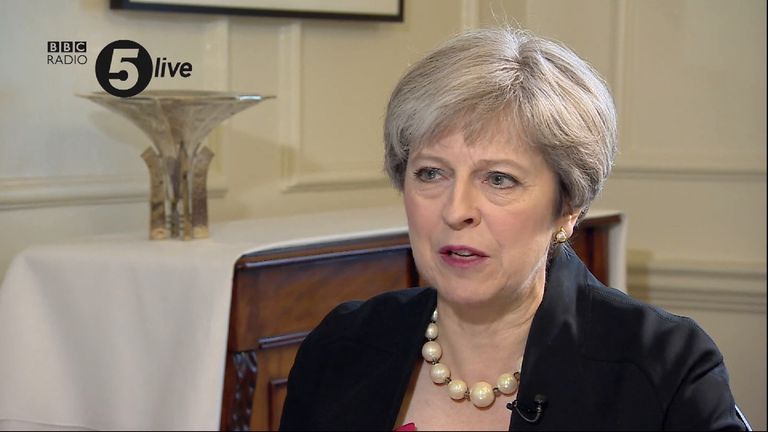Labour seen as 'soft Brexit' party at General Election, study finds
A new study of last month's General Election shows voters saw Labour as the "best bet" for maintaining close ties with the EU.
Tuesday 1 August 2017 16:29, UK
Voters at the last General Election saw Labour as the party that could deliver a "soft Brexit" and maintain close ties to the EU, a new study shows.
Academics from the British Election Study (BES) team looked at how Remain and Leave voters at the 2016 Brexit referendum cast ballots in last month's snap election.
They found that Labour won over "large numbers" of Remain backers from the Conservatives, the Green Party and Liberal Democrats.
In all, more than 50% of all voters who backed Remain at the 2016 EU referendum gave their support to Jeremy Corbyn's party.
This compared with 25% for the Tories and 15% for the pro-EU Lib Dems, despite the fact that Tim Farron had promised a second referendum once the terms of the Brexit deal are clear.
Professor Ed Fieldhouse and Chris Prosser, members of the BES team from the University of Manchester, wrote: "Despite an ambiguous position on the single market, Labour was seen as the best bet for those wanting to keep closer ties with our European neighbours."
Since the election, confusion inside the Labour Party has continued.
Mr Corbyn has said Britain would leave the single market while shadow Brexit secretary Sir Keir Starmer and other leading party figures insist all options are on the table.
The research also showed how Mr Corbyn outperformed Theresa May during the campaign.
Mrs May lost her Conservative majority in the election, a humiliating result for a leader who had demanded a strong mandate from the country to negotiate Brexit and who had a double-digit lead in the polls at the start of the campaign.
The BES study is based on a survey of more than 31,000 people conducted by YouGov between 9 June and 23 June.
The study found a "striking correlation between wanting to control immigration and voting Tory on one hand, and wanting access to the single market and voting Labour or Lib Dem on the other".
It said the Conservatives lead Labour by more than 40 percentage points amongst voters who wanted full control of immigration, while Labour had a similar lead among voters wanting complete access to the single market.
"The Tories were the party of hard Brexit whilst Labour was the party of soft Brexit," the professors said.
In the absence of Nigel Farage, much of the UKIP vote went to the Conservatives, who adopted a hard line on Brexit, the study found.
Brexit was the dominant issue of the election for more than one in three of the respondents - well ahead of the NHS or the economy.
In separate polling data, YouGov asked more than 2,000 Leave voters if they would consider significant damage to the economy a price worth paying for Brexit - 61% answered yes, 20% no and 19% don't know.
It also asked 2,200 Remain voters if significant damage to the economy was a price worth paying to stay in the EU - 34% replied yes, 38% no and 27% said they did not know.






